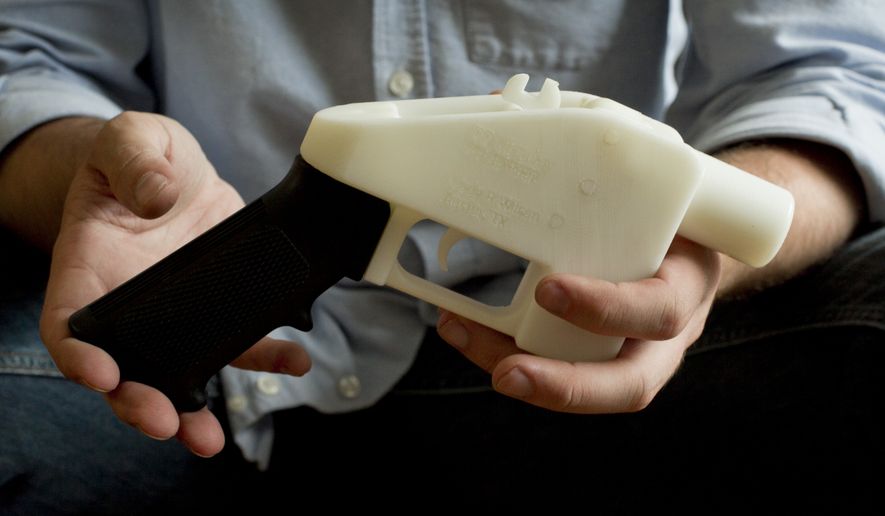
President Trump pledged to look into 3D plastic guns on Tuesday, the day before the blueprints become publicly available for free download.
Mr. Trump explained that he spoke to the National Rifle Association about the matter, and said it “doesn’t seem to make much sense.”
I am looking into 3-D Plastic Guns being sold to the public. Already spoke to NRA, doesn’t seem to make much sense!...
— Donald J. Trump (@realDonaldTrump)
July 31, 2018
[1] The president’s promise comes a day after nine states filed a lawsuit against the Trump administration for allowing the open-source software. Led by Washington Attorney General Bob Ferguson, attorneys general from California, Connecticut, the District of Columbia, Maryland, New York, New Jersey, Oregon, Pennsylvania and Massachusetts joined the movement. Massachusetts Attorney General Maura Healey sent a letter to both Secretary of State Michael Pompeo and Attorney General Jeff Sessions about the threat posed by the downloadable guns, a letter that 20 other attorneys general signed. Congress may also take up the matter. Democratic Sens. Richard Blumenthal, Bill Nelson, Robert Melendez and Edward Markey announced they would hold a press conference Tuesday afternoon to address the issue of using software and 3D printers to create guns. “In a stunning reversal of course last month, the federal government agreed to a settlement with Defense Distributed that would allow anyone to download blueprints for the 3D printing of firearms like the AR-15 used in the Parkland, Florida shooting. These downloadable guns are untraceable and no background check is required,” their statement read.The plans were first
released[2] by Defense Distributed founder Cody Wilson, but the State Department stopped it in 2013, arguing they violated International Traffic in Arms Regulations.The Second Amendment Foundation, on behalf of Mr. Wilson and Defense Distributed, sued the Justice Department in 2015 in response to the State Department’s actions.In July, the government reached a settlement with the company and waived the 2013 decision, allowing the company to move forward with their DEFCAD project.“Significantly, the government expressly acknowledges that non-automatic firearms up to .50-caliber — including modern semi-auto sporting rifles such as the popular AR-15 and similar firearms — are not inherently military,” a statement from gun advocates’ attorney Josh Blackman read.Defense Distributed, which offers a variety of 3D products related to firearms, will launch their DEFCAD project on Aug. 1. Ten products are already posted on the project’s
webpage[3], including plans for an AR-10 and AR-15.
The Washington Times Comment Policy The Washington Times welcomes your comments on Spot.im, our third-party provider. Please read our Comment Policy[4] before commenting.References
^ July 31, 2018 (twitter.com)^ released (www.washingtontimes.com)^ webpage (defcad.com)^ Comment Policy (www.washingtontimes.com)Read more from our friends at the Washington Times


